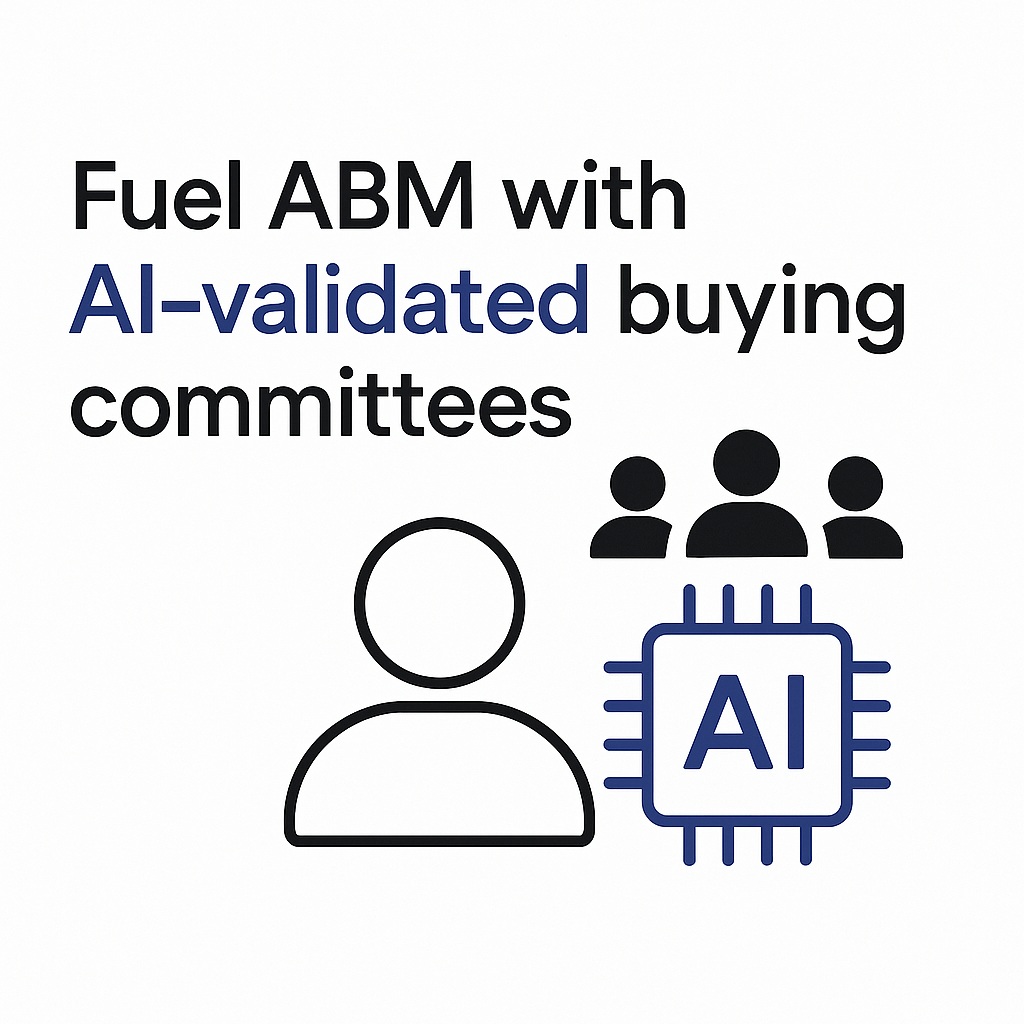It is important to understand how data enrichment can be used to grow sales and run good marketing for businesses. This is even more important during an economic recession.
What is Meant by Data Enrichment
Data enrichment is the process of adding additional information to existing data sets in order to make them more valuable and useful. In the world of sales and marketing, data enrichment can be a powerful tool for generating more leads and acquiring new customers. By adding additional details about potential customers, businesses can better understand their needs, preferences, and behaviors, and tailor their sales and marketing efforts accordingly. This can help businesses gain a deeper understanding of their customers and target their marketing efforts more effectively. In the B2B space, data enrichment can be particularly valuable, as it can help companies identify new opportunities and drive millions in new sales.
What is Data Enrichment Used For
Data enrichment is a transformative tool that can revolutionize the way businesses approach sales and marketing. Adding layers of valuable information to existing customer data, companies can achieve more precise targeting, uncover new opportunities, and ultimately drive higher engagement and sales. Here's how data enrichment can be leveraged effectively:
Crafting Targeted and Personalized Campaigns
Personalized Messaging
One of the primary benefits of data enrichment is its ability to facilitate highly targeted and personalized sales and marketing campaigns. By enriching customer data with additional information such as demographics, interests, and purchase history, businesses can segment their audience more effectively. This segmentation allows for the creation of customized messages and offers that resonate on an individual level.
Example:
Imagine an online retailer that enriches its customer data with information about past purchases and browsing behavior. Instead of sending generic promotional emails, the retailer can tailor its messages to highlight products that align with each customer's preferences, significantly increasing the likelihood of conversion.
Increased Engagement and Conversion Rates
Personalization is key to capturing the attention of modern consumers. Data enrichment enables businesses to move beyond one-size-fits-all marketing strategies. By delivering content and offers that are directly relevant to individual customers, businesses can foster deeper engagement, build stronger relationships, and boost conversion rates.
Insight:
For instance, a fitness brand could use enriched data to identify customers interested in outdoor activities and send them targeted offers for hiking gear, enhancing the customer experience and driving sales.
Identifying New Opportunities and Trends
Market Insights
Data enrichment also empowers businesses to identify new opportunities and trends within their market. By analyzing enriched data, companies can gain a deeper understanding of customer behavior, preferences, and emerging trends. This insight is invaluable for developing new products, services, and marketing strategies that align with the evolving needs of the market.
Example:
A beauty company might discover through data enrichment that a growing segment of their customer base is interested in eco-friendly products. Armed with this knowledge, the company can expand its product line to include sustainable options, attracting new customers and meeting the demands of environmentally conscious consumers.
Emerging Market Segments
Enriched data can reveal hidden gems within your customer base, such as emerging market segments that were previously overlooked. Identifying these segments allows businesses to tailor their strategies to attract and retain these new customer groups.
Insight:
Consider a financial services firm that uses data enrichment to uncover a rising interest in cryptocurrency among its younger clients. By developing tailored services and educational content around cryptocurrency investments, the firm can tap into this growing segment and establish itself as a leader in a new niche market.
Related: What are Data Enrichment Tools
Data Enrichment for Sales & Marketing
Data enrichment can also help businesses to optimize their sales and marketing efforts by providing a more complete picture of customer behavior. By adding information such as purchase history, web browsing data, and social media activity to customer data, businesses can gain a better understanding of how customers interact with their brand and products. This can help businesses to identify the most effective channels, messages, and offers, and improve the return on investment of their sales and marketing efforts.
One of the key benefits of data enrichment is that it allows companies to better segment their customer base. By adding data points such as industry, company size, and location, businesses can create more targeted marketing campaigns that are better aligned with the needs of their customers. This can help them to generate more qualified leads and ultimately drive more sales.
Another benefit of data enrichment is that it can help companies to identify new market opportunities. By adding data on customer purchasing habits, businesses can gain insights into the types of products and services that their customers are interested in. This can help them to develop new products and services that are better aligned with the needs of their customers, which can drive additional revenue.
Data Enrichment for Customer Retention
Furthermore, data enrichment can also help businesses to improve their customer retention efforts. By adding data on customer satisfaction and engagement, companies can gain insights into the factors that drive customer loyalty. This can help them to identify and address any issues that may be causing customers to churn, which can help to retain more customers and drive more sales.
Related: Sales Strategies During a Economic Recession
Data Enrichment Examples
Data enrichment involves enhancing and expanding the information contained in your existing datasets. This process can be valuable for various purposes, such as improving the quality and depth of your data, gaining better insights, and making more informed decisions. Here are some data enrichment examples:
Geospatial Data Enrichment:
- Adding latitude and longitude coordinates to addresses or location data.
- Incorporating demographic data based on geographic regions.
- Enhancing geographic data with information about nearby points of interest, businesses, or landmarks.
Customer Profiling:
- Appending additional information to customer records, such as social media profiles, job titles, and company affiliations.
- Incorporating purchase history, transaction data, and behavioral information.
- Segmenting customers based on demographics, interests, and behavior for targeted marketing.
Social Media Data Enrichment:
- Gathering and adding social media activity, followers, and engagement data to customer profiles.
- Extracting sentiment and opinion analysis from social media posts.
- Enhancing user profiles with information about their online presence.
Market Research:
- Adding industry-specific data to market research reports, such as market size, trends, and competitor analysis.
- Integrating government data and economic indicators into market analysis.
- Enriching surveys or customer feedback data with additional context, like location and demographics.
Email Marketing:
- Verifying and appending missing email addresses to your contact list.
- Segmenting email lists based on customer preferences and behavior.
- Personalizing email content using enriched customer data.
Lead Generation:
- Augmenting lead data with additional contact information, such as phone numbers or social media profiles.
- Gathering insights about a lead's company, job role, and industry.
- Qualifying and scoring leads based on enriched data.
Product Recommendations:
- Enhancing product recommendation engines with user behavior and browsing history.
- Utilizing customer reviews and ratings to improve product suggestions.
- Personalizing recommendations based on enriched user profiles.
Fraud Detection:
- Enriching transaction data with information about the customer's historical behavior.
- Identifying anomalies and patterns by cross-referencing enriched data.
- Calculating risk scores based on a range of enriched attributes.
Content Personalization:
- Customizing content on websites or applications based on user preferences and behavior.
- Serving location-specific content through geospatial data enrichment.
- Tailoring news articles or advertisements to individual interests.
Business Intelligence:
- Integrating external data sources (e.g., economic indicators, market trends, competitor data) with internal data for comprehensive analysis.
- Combining financial data with non-financial indicators for better decision-making.
Data enrichment can be a valuable tool for improving data quality, making more accurate predictions, and enhancing various business processes. However, it's important to ensure that the data enrichment process is carried out responsibly, respecting privacy and data protection regulations.
What are Data Enrichment Services
Data enrichment services are specialized offerings provided by companies and service providers that help organizations enhance their existing datasets by adding, updating, or improving the information contained within them. These services typically involve gathering external data from various sources and integrating it with the client's internal data to create more comprehensive and valuable datasets. Data enrichment services can be beneficial for improving data quality, gaining deeper insights, and supporting various business processes.
Related: What are Data Enrichment Tools
Data enrichment services can be valuable for various industries, including marketing, sales, finance, healthcare, and more. They can save time and resources, improve data-driven decision-making, and help organizations gain a competitive edge by having access to more complete and reliable data. However, it's important to choose reputable service providers and adhere to data privacy and compliance regulations when utilizing data enrichment services.
Recap
Overall, data enrichment can be a powerful tool for B2B companies looking to drive millions in new sales, especially if they are using powerful sales software. By adding additional information to their existing data sets, businesses can gain a deeper understanding of their customers and target their marketing efforts more effectively. This can help them to identify new opportunities, improve customer retention, and ultimately drive more revenue.




-760x600.png)














